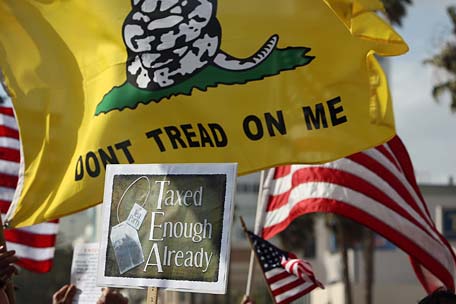Good Morning America’s Bianna Golodryga on Sunday featured a liberal activist arguing for more government intervention in the form of paid time off laws and “affordable” child care. The ABC host never identified Kristin Rowe-Finkbeiner’s ideology or the fact that she’s a Huffington Post contributor. Instead, Golodryga fretted about “bias” against women who have children. The Rowe-Finkbeiner interview and the preceding segment lamented the fact that women who have children often don’t end up making as much as men and also females who don’t have kids. Neither segment even hinted that there could be two sides to the story. Instead, Rowe-Finkbeiner was allowed to lobby, “We know that passing family-friendly policies and programs like paid family leave, like affordable child care, like access to paid sick days, like access to flexible work options, those things actually help lower the gap between women and men.” Rowe-Finkbeiner’s blogs on the Huffington Post have advocated for a number of left-wing causes, including attacking Arizona for its tough immigration law. The segment also featured a woman by the name of Kiki Peppard. Golodryga explained: “Kiki Peppard spent a decade as a successful bookkeeper before taking leave to spend more time with her kids. But, when she went to reenter the work force after a divorce, she found herself on the outside looking in.” An ABC graphic blandly identified that Kiki “had a hard time finding work.” However, according to MomsRising.org , where Rowe-Finkbeiner is the executive director, Peppard has ties to the organization dating back to 2006. Golodryga also skipped this fact. Instead, she wondered, ” So, we heard Kiki’s story. How common and widespread are stories like hers? ” Rowe-Finkbeiner played dumb: “You know, I hear from women like Kiki everyday. Kiki is definitely not alone.” ABC on Sunday went way beyond being one-sided. Not identifying either of these women, their agendas and their connections is incredibly misleading. A transcript of the August 22 segment, which aired at 8:40 am EDT, follows: BIANNA GOLODRYGA: In America’s Jobs this morning, we’re going to look at the pay gap. The disparity between what men and women make has been shrinking over the years. And while it’s still not exactly equal, it is getting better, except for one particular group of women. They’re some of the most accomplished women in the world. Supreme Court justices. A former secretary of state. Even the head of Homeland Security. But, despite their widely varying political differences, they all have one thing in common: These woman don’t have children. And experts say, that fact may contribute directly to their success. According to the University of Chicago, men and women right out of school had nearly identical incomes and hours worked. But, 15 Years later, the men made 75 percent more than the women in the group. The only exception to the room? A small group of women who never had children. Their pay equaled the men. KIKI PEPPARD: There is such a double standard. GOLODRYGA: Kiki Peppard spent a decade as a successful bookkeeper before taking leave to spend more time with her kids. But, when she went to reenter the work force after a divorce, she found herself on the outside looking in. PEPPARD: The very first question asked me was, “Are you married?” And the second question was, “Do you have any children? This went on for the first 18 job interviews. On my19th job interview, they did not ask me about my marital status. They did not ask if I had children and hired me. GOLODRYGA: It’s long been assumed women make less than men because they have more career disruptions. But the unequal pay disparity also pits moms against non-moms. Women with kids are 44 percent less likely to be hired than women without. And they’re paid $11,000 less. And in this economy, that bias can be devastating to many families just trying to get by. And joining me now from Seattle to talk more about this is Kristin Rowe-Finkbeiner, the co-founder and executive director of MomRising.org. Good morning. Thanks for joining us, Kristin. KRISTIN ROWE-FINKBEINER (executive director, Momsrising.org): Good morning. GOLODRYGA: So, we heard Kiki’s story. How common and widespread are stories like hers? ROWE-FINKBEINER: You know, I hear from women like Kiki everyday. Kiki is definitely not alone. One of the thing is that this problem is bigger than most people realized. In fact, the maternal wall standing in the way of the glass ceiling. And here’s what it looks like: Women without children make 90 cents to a man’s dollar. Women with children make only 73 cents to a man’s dollar. So, this is a big discrepancy. And we have a big issue with pay discrimination against mothers. GOLODRYGA: So, when we hear statistics like that, what can be done to level out the playing field in the workforce? ROWE-FINKBEINER: Well, we have a big issue to address. And that’s that we have a 1950s work policy structure but we have a modern labor force. We’re now more than 50 percent of the labor force are women for the first time in history. But, that doesn’t mean we’ve reached full equality as we just heard in the segment. Because, right now, women and mothers are struggling. Moms are working full time and can’t put food on the table. In fact, one in four children in our nation are experiencing food scarcity in their households because of economic limitations, according to the USDA. So, the solutions are there. We have solutions. We know that passing family-friendly policies and programs like paid family leave, like affordable child care, like access to paid sick days, like access to flexible work options , those things actually help lower the gap between women and men. And they raise all boats. Because, it’s not just moms who need the policies, but everybody needs those policies in order to excel in their life, in the workplace and with their families. GOLODRYGA: But, now of all times, with the economy being so bumpy, with jobs being even more difficult to find, what should moms who are planning on taking time off do to avoid falling behind? ROWE-FINKBEINER: Well, professional women who decide to take time out of the labor force need to do four things. One, and most importantly, they really need to keep up with their professional contacts. Maintain those contacts so they have smooth sailing when they move back into the labor force. Two, they need to make sure that their professional accreditations are up to date while their out of the labor force. Three, this is really important. They need to find a mentor. Somebody who has navigated this interesting seas before and can help them navigate through. And fourth, one thing that’s very important is to find volunteer positions that you can put on the resume while you’re out of the labor force to show that you were productive while you were staying home with kids. Not that staying home with kids isn’t an important job in and of itself. Because it is. One of the things, though that is critically important to understand is that because we have a 1950s work policy structure in our nation still, we haven’t updated our policies like most other countries have, that most women can’t stay out of the labor force. So, we have a huge problem where we, you know, don’t have paid family leave, like 177 other countries do. And because of that, we see the implications on kids with a quarter of families with young children living in poverty. So, it’s important to recognize that not that many people can stay out of the labor force. GOLODRYGA: That is true, indeed. Especially in these times.

More:
ABC Hides Identity of Liberal Activists Advocating for More Government Intervention in Business
































